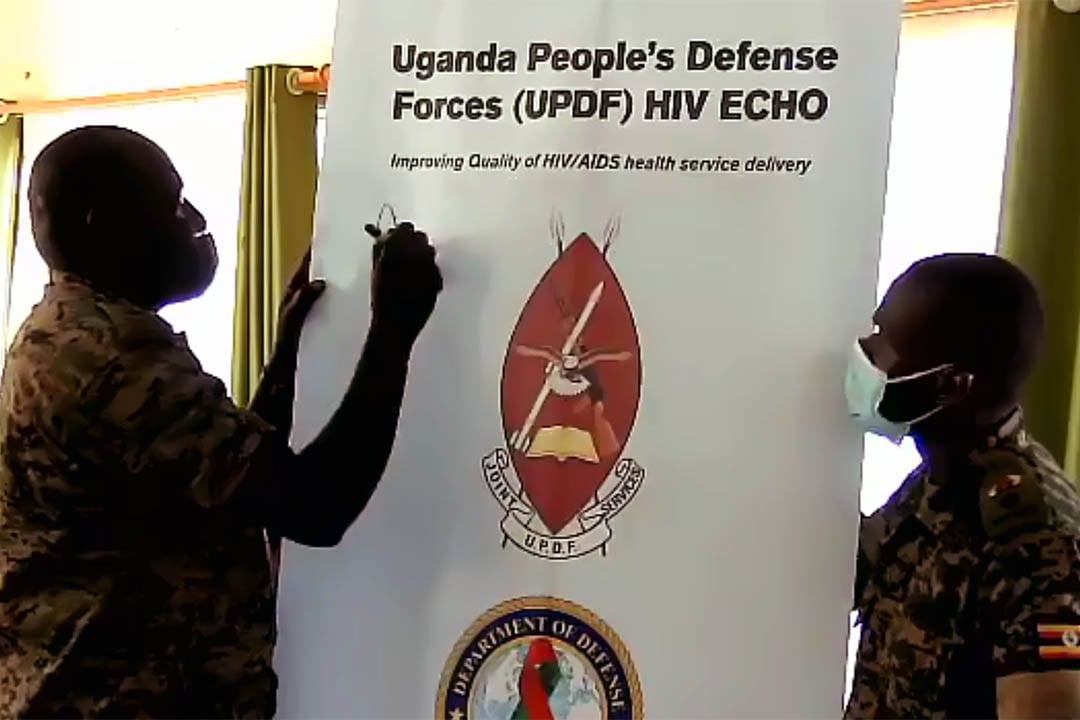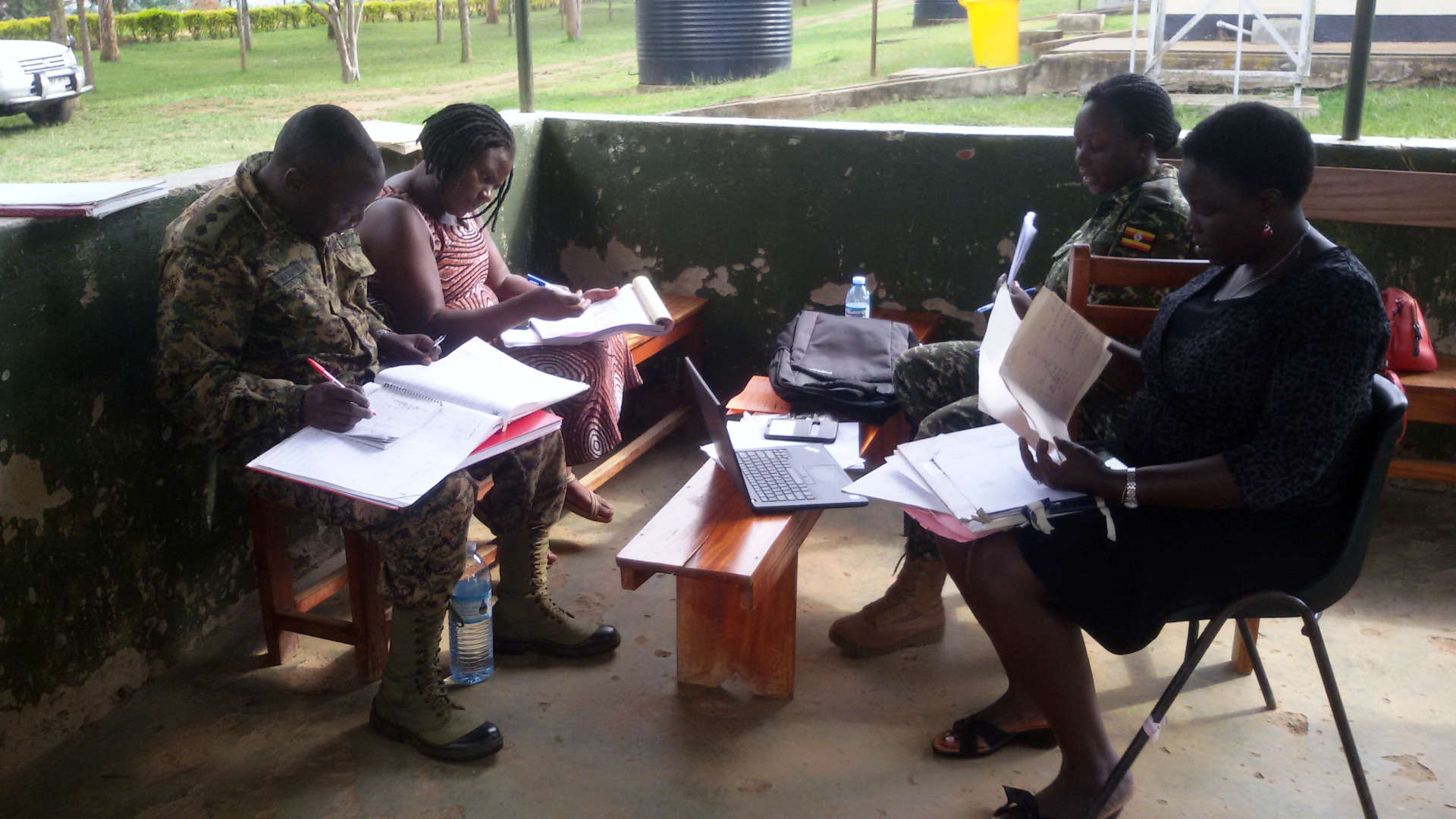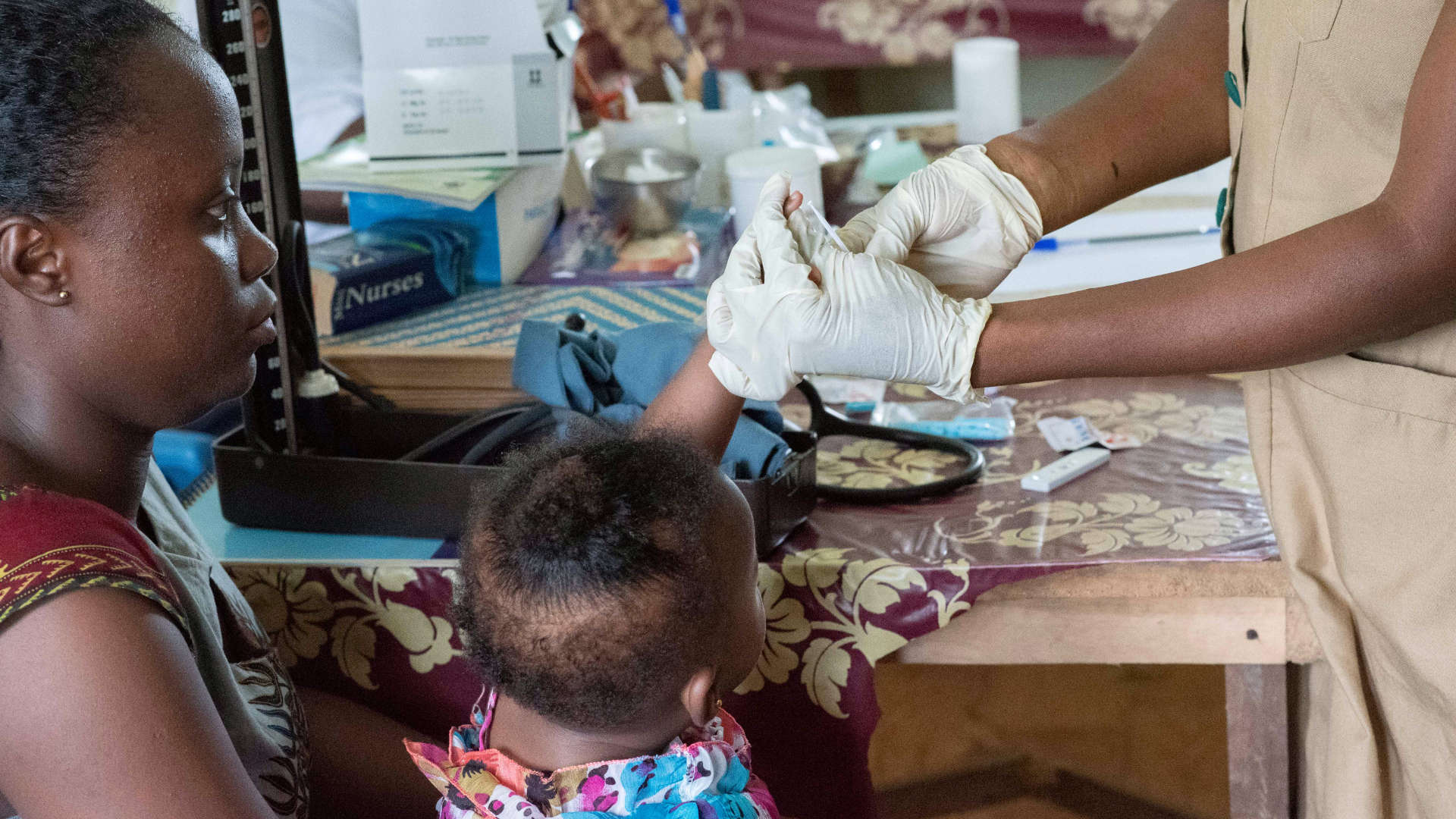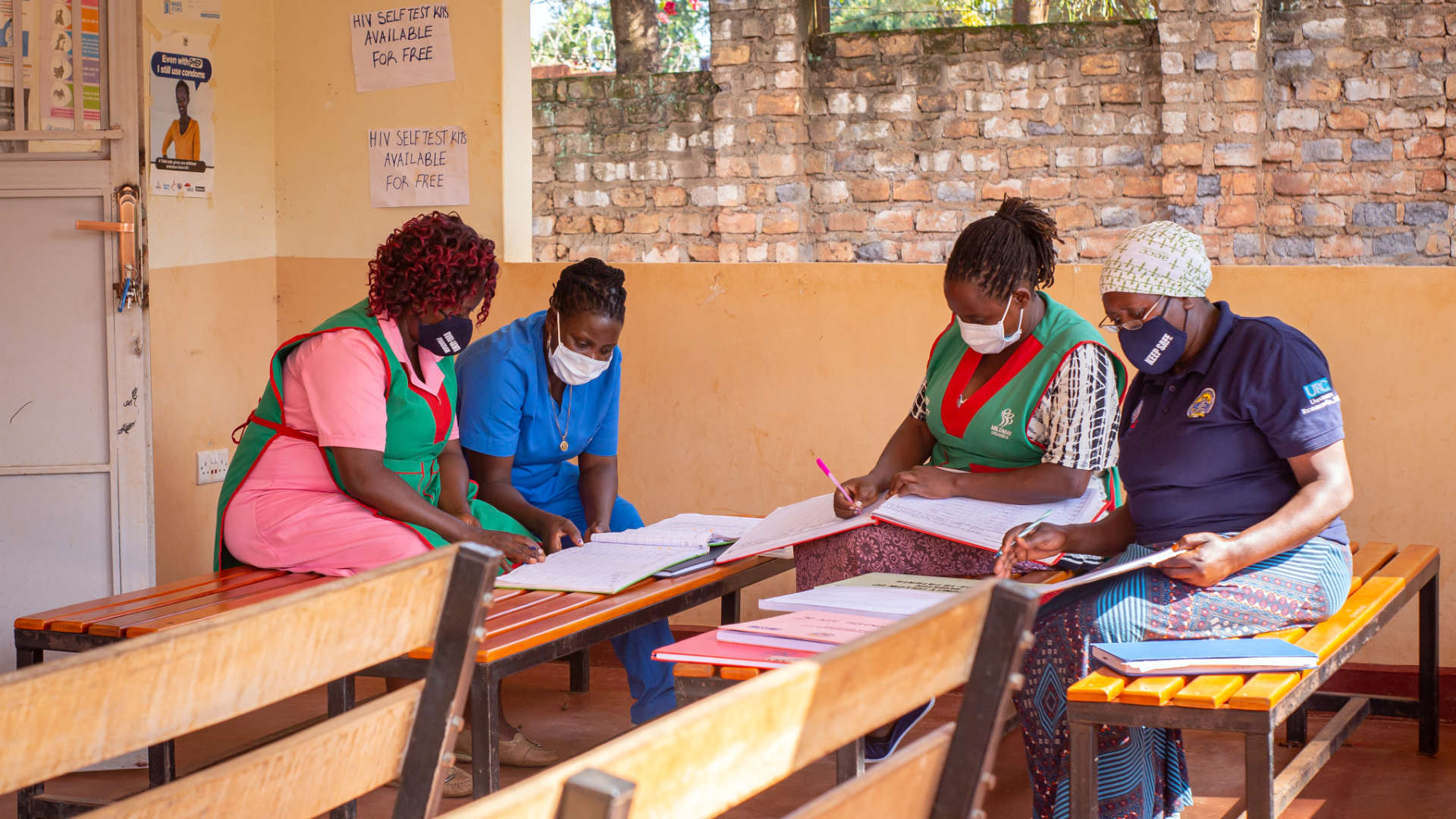The COVID-19 pandemic and consequent strain on public health resources has disrupted traditional classroom-based learning and instruction typically offered to health workers. While virtual learning has proven to be an effective adaptation to COVID-19-related learning disruptions, it has yet to be formally institutionalized as a learning format.
That is changing with a new effort – the Extension for Community Healthcare Outcomes (ECHO) program – that was launched on January 20. ECHO will use a virtual, shared learning platform to strengthen the capacity of Uganda People’s Defence Force (UPDF) health workers to provide quality HIV care. ECHO is being made possible by the PEPFAR-funded Department of Defense HIV/AIDS Prevention Program Uganda (DoD Uganda URC Project), implemented by URC, and local partners the Infectious Diseases Institute (IDI) and the UPDF.
The goal of the program, known as UPDF ECHO, is to promote HIV epidemic control and improve clinical outcomes within the Ugandan military. UPDF ECHO is being implemented by URC as part of the four-year UPDF Partnership for Sustainable HIV Epidemic Control Project. Through this program, virtual communities of practice are being promoted as an approach to strengthening the capacity of health care providers.
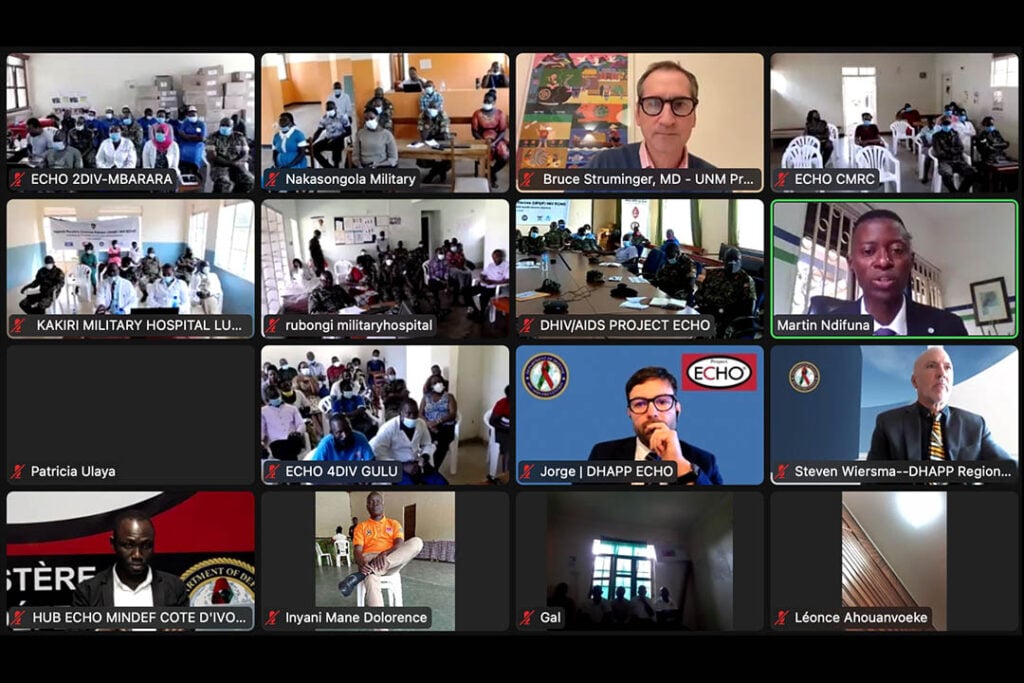
The model – developed by the University of New Mexico – is a learning framework in which support, guidance, and feedback can be shared in a virtual knowledge-sharing community. Health workers across multi-disciplinary teams present real cases to each other for recommendations as knowledge is tested and refined through a local lens. Best practices are shared and continuous improvement occurs through collaborative learning. In resource-constrained medical settings, this platform provides a unique opportunity for clinical mentorship, peer support, and learning. The ECHO model calls it “all teach, all learn.”
Together with IDI, URC has set up seven initial ECHO sites, providing equipment and training staff on its use. A core team from the UPDF Directorate of HIV/AIDS has been trained to lead the management of the ECHO program. This team will expand the work to target health workers at all 31 UPDF managed antiretroviral therapy (ART) accredited clinics in the country.
“The model will improve access for rural and underserved patients as specialists engage one another to problem solve complex clinical care challenges. I expect that we will have better quality of care as a result of this platform, and a more rapid dissemination of best practices,” said Brigadier General Patrick Ocen at the project launch.
The launch was well attended by implementing partners and stakeholders globally, including representatives from the University of New Mexico, the DoD Uganda URC Project, and military personnel from Côte d’Ivoire, Benin, Chad, and other African countries.
URC has successfully employed the ECHO model to enhance quality improvement of healthcare service delivery in a number of projects including the global USAID ASSIST Project. By supporting health workers to better manage patients and provide quality care, health outcomes are improved.
